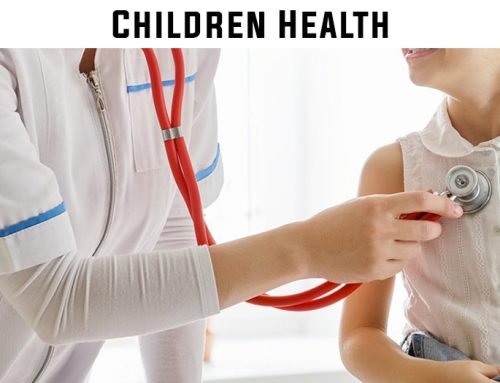Across the world, mental disorders are a major, yet often ignored. It is the cause of suffering for many children and young people. So, they interfere with health, education, and realizing personal potential.
Mental health problems can majorly affect a child’s development and quality of life. Emotional distress, academic challenges, difficulties in social relationships, health issues, and low self-esteem. So, behavioural disorders and family dynamics abnormalities are possible manifestations of these issues.
Children with mental health issues may exhibit problematic behaviours. They experience social isolation and rejection. So, children have problems concentrating and learning, show extreme emotions, and exhibit physical symptoms. They could also develop negative views of themselves. In addition, it is essential to notice these problems early on and treat them immediately.
What is mental health for children?
Child health especially the Child’s mental health includes their emotional, psychological, and social development. It depends on a child’s emotional intelligence. They can make good friends, grow, and keep going when things get hard. When we talk about a child’s mental health, we don’t mean that they don’t have any health problems.
We also suggest that their emotions and thoughts are stable. It looks at how well the child can describe himself. How much their self-esteem grows if they have good friends. And if they are interested in things that help them grow. So, children must have good health to grow and reach their full potential.
Five ways how mental health difficulties affect children:
Anxiety, loneliness, insecurity:
They can cause bedwetting and difficulty falling asleep. Nightmares and strained relationships with loved ones.
Emotional Withdrawal:
To deal with abuse, children may pull away and act like nothing is happening around them.
Aggression:
They might start fighting, yelling at their friends, or even picking on other kids.
Psychosomatic symptoms:
They may suffer from headaches, stomachaches, and chest aches when they’re in much pain. As well as having trouble breathing or speaking.
Self-harm:
Kids sometimes think drugs and alcohol are the only way to escape their problems. Or even resorting to self-harm and suicide.
Common signs of poor mental well-being in Children’s
Warning signs that your child is experiencing poor psychological well-being include:
- Significant changes in behaviour and mood at home, school, or friend’s houses.
- Excessive or poor sleep
- Concentration problems
- Irritability
- Avoiding before favorite social situations and activities
- Persistent feelings of sadness
- Changes in eating habits – eating too much or too little
- Self-harm or abandonment
- Problems at school, including truancy or a drop in grades
- Frequent headaches. Worrying or crying more than usual
Read More: Want to consult an online doctor about your child’s mental health?
How can mental health affect a child’s development?
The child’s mental health significantly affects how they grow as a whole. This could affect their mental, emotional, social, and behavioural development. Mental health disorders can hurt a child’s ability to focus, remember, and fix problems. So, this could hurt a child’s schoolwork and brain development.
How a child feels mentally is strongly affected by how they think. Conditions like sadness, anxiety, or trauma affect a child’s mental health. These can make it hard for them to understand and control their feelings. So, mental health problems can make getting along with adults and friends hard.
Many things can affect a child’s social skills and sense of belonging. These are social withdrawal, isolation, and problems with speech and interaction. This can make it hard to follow the rules, lead to destructive behaviour, and make it hard to create good ways to deal with problems.
Are some children more at risk?
Children’s mental health problems affect many families. Yet, some may be more at risk due to circumstances or outside influences. Potential risk factors for children include:
- Having a painful event happen, like the death of a close family member or the breakup of their parents
- Have a long-term physical illness.
- Have a parent with mental health problems or substance abuse.
- Experiencing abandonment or being abused.
- Being bullied.
- Having financial problems at home, including a poor house.
- Hold the role of assistant or other responsible position.
- Continuous difficulties in school.
How do you treat mental illness in children?
When caring for a kid with a mental illness, it is common to take a “holistic” approach. Which include many types of therapy and social support.
Psychotherapy:
In psychotherapy, you meet with a mental health worker regularly. Cognitive-behavioral therapy, play therapy, and family therapy are all examples of psychotherapeutic methods. So, doctors use these therapies to help children understand. And control their feelings, learn how to deal with problems, and improve their well-being.
Medication:
Children with mental health problems are sometimes given medicine. In this area, it is normal for a child psychiatrist to work with the child’s general paediatrician. So, medication can help ease the symptoms of illnesses like depression, anxiety, and mood disorders. You can track how well your Children’s medicines work by checking in with Telehealthdr professionals regularly.
Actions that work
For children with mental illness to get better, a caring setting is needed. Setting up routines, giving a sense of stability, and encouraging healthy living choices. Going to the gym often and getting enough sleep are also helpful.
Support at school:
In a school setting, students may have access to counsellors, psychologists, and other professionals who help with education. Moreover, this can mean making a personalized education plan (IEP), making some changes, or putting in place some tools to help the child do well in school and with their friends.
As a strategy, teamwork
Many experts, like therapists, psychiatrists, paediatricians, and educators, work together to help kids with mental illness.
Read More: How To book an online doctor appointment for mental health treatment?
Is too much screen time hurting the health of children?
If kids spend too much time in front of screens, it could hurt their health and well-being. Even though screens and digital devices are everywhere in modern life, it’s important to find a balance and ensure that kids do various things for their overall growth.
Too much computer time can hurt kids health in many ways, such as:
Physical well-being:
Spending too much time in front of computers can lead to a sedentary lifestyle, which is terrible for your health because it means you don’t get enough exercise. You also run a higher risk of health problems like obesity. When people use screens right before bed, it could affect how they sleep.
Vision Problems
Long periods of computer time can cause eye strain and may worsen conditions like dry eyes, tired eyes, and nearsightedness. The child healthcare Australia Academy says these risks can be lessened by taking breaks and ensuring proper lighting and posture when using computers.
Effects Brain’s Memory
A lot of screen time may slow the development of critical thought, problem-solving skills, and creativity, even though educational information and interactive platforms may be suitable for cognitive development. Also, it might make it harder for kids to make friends and learn by doing, both critical for their brain growth.
The health of the body, mind, and community
More screen time can slow the development of critical social skills and reduce face-to-face interactions. So, it could make people less empathetic, worse at communicating, and less able to make and keep genuine relationships. Also, some internet content or social media sites can make people feel even more alone, bad about themselves, and unhappy with their bodies.
Sleep and routine changes
Spending too much time in front of a computer, especially before bed, can affect the quality and rhythm of your sleep. Melatonin, a hormone that controls sleep, can’t make enough of itself when computers give off blue light. Lack of sleep can domino affect a person’s overall health and well-being, hurting their feelings, ability to think, and physical health.
What improves a child’s health?
All children will benefit from a healthy lifestyle supporting their physical, emotional, and mental well-being. So, this may include:
- Follow a balanced diet.
- Keep physically active.
- Have the time and opportunity to play indoors and outdoors.
- Participate in activities in the local community and with friends.
- Living within a supportive family where they feel safe and supported in their choices.
What are the best tips to nurture your child’s health?
Child health care Tips:
Tip 1.
Try to take part in the recovery of your child. Not only tell him what to do in order not to get sick. But also show by personal example the health benefits. Following the rules of personal hygiene, morning exercises, hardening, and proper nutrition.
Tip 2.
Teach your child to observe the hygiene requirements for the cleanliness of the body, linen, and clothing.
Tip 3.
Teach your child to build his day, alternating rest and work. Moreover, nothing harms a child’s nervous system like the lack of a daily routine. The rhythm of life includes physical exercises and sports, walks, and games in the fresh air. As well as good nutrition and sound sleep are the best prevention of fatigue and illness.
Tip 4.
Help your child learn self-management skills, especially when exercising. To do this, keep a diary of observations and record data about his physical condition with the child. The weight (body weight, height, pulse rate, well-being (sleep, appetite, etc.)
Tip 5.
Teach your child to use the sun, air, and water healing factors. So, instill in your child the desire and habit to child’s health care.
Tip 6.
Organize the child’s proper nutrition and bring a positive attitude towards observing the diet. Additionally, the child must know which foods are healthy and which are unhealthy.
Tip 7.
Teach your child the basic rules of infectious disease. Stay away from those who cough and sneeze. Additionally, do not use someone else’s dishes or toothbrush; Do not wear other children’s shoes or hats.
Tip 08.
Read popular scientific literature about the age and individual characteristics of a child’s development. So, to teach him to strengthen his health.
Where to get support
Parents, families, friends, teachers, and caregivers such as child mental health specialists can help support children at risk of poor psychological well-being.
One of the most important ways parents can support their children is to listen to them and take their feelings seriously. Parents may seek support from Telehealth doctors. If they feel the child has been distressed for a long time. So, if these feelings affect the child’s satisfaction with daily life, or if her behaviour is affecting family life.
Furthermore, parents concerned about their child’s mental health may find it helpful to discuss their experiences with other family members, friends, and the child’s wider circle to determine if they have noticed any behavioural changes. The changes can then be discussed with Telehealth doctor pediatrician.



Leave A Comment